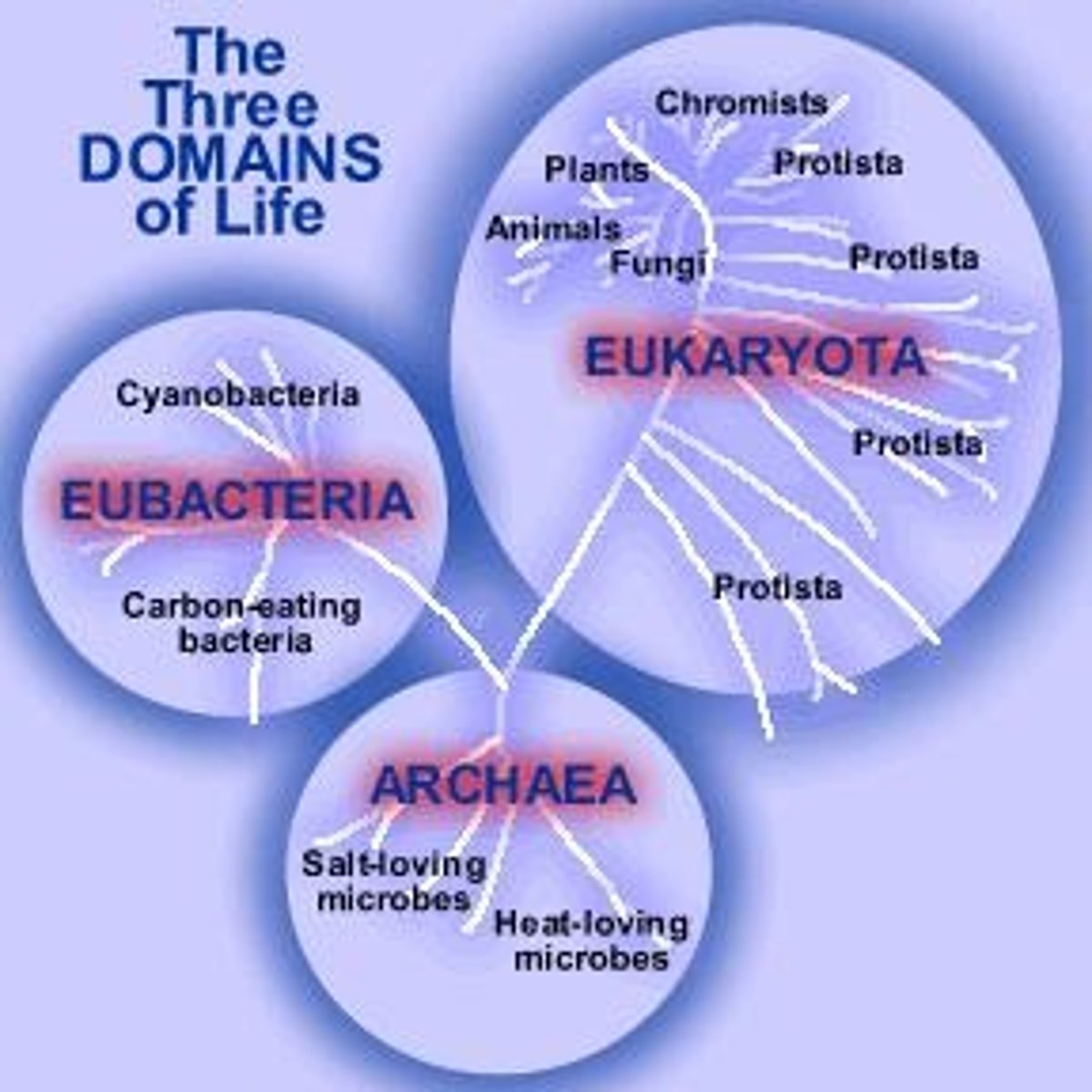Unit 4: Classification and Diversity of Life
1/27
There's no tags or description
Looks like no tags are added yet.
Name | Mastery | Learn | Test | Matching | Spaced |
|---|
No study sessions yet.
28 Terms
Taxonomy
Science of classifying and naming organisms. Physical and structural similarities
2 kingdom system
Plantae and Animalia, until 1866
Domain
Highest taxonomic rank in biological classification.
Kingdom
Second highest taxonomic rank, groups organisms.
Prokaryotes
Single-celled organisms without membrane-bound nuclei.
Eukaryotes
Organisms with membrane-bound nuclei and organelles.
Binomial Nomenclature
Two-part scientific naming system for species (Genus and Species).
Genus
First part of a species name, capitalized, noun.
Species
Group of organisms capable of interbreeding. has both genus and specific epithet (second part of name)
Variety
Distinct variation within a species. ex. Prunus virgiana var. melanocarpa
Linnaean Classification System
Hierarchical system for naming and classifying organisms. Developed by Carolus Linnaeus
Kingdom Monera
Former kingdom for all prokaryotic organisms.
Kingdom Fungi
Includes molds and mushrooms, distinct from plants.
Domain Bacteria
Includes some single-celled prokaryotes, largest kingdom, classified by shape, need for action and disease engagement

Domain Archaea
Some single-celled prokaryotes, diff cell wall than bacteria
In what type of environments do Archaea typically live?
Extreme environments such as deep sea vents, hot geysers, cold water, and salt lakes
Domain Eukarya
Includes all organisms with eukaryotic cells (distinct nucleus, membrane bound organelles). single-celled, colonial or multicellular
Ranks in order
Domain, Kingdom, Phylum, Class, Order, Family, Genus, Species
Species Name Format
Italicized, first part capitalized, second lowercase.
Specific Epithet
Second part of the species name, descriptive. if unknown use sp.
Taxon (Taxa)
Group of organisms in a classification system. i.e. all animals in one species
Ernst Haeckel
Proposed a new kingdom for single-celled organisms.
Herbert Copeland
Argued for separate kingdom for prokaryotes.
Carl Woese
Divided Monera into Bacteria and Archaea.
Ernst Haeckel
move all single-celled into one kingdom
Herbert Copeland
prokaryotes (no membrane-bound nucleus or organelles) own kingdom (kingdom monera)
Robert Whittaker
fungi own kingdom (cuz of how they feed)
Carl Woese
divided kingdom monera (bacteria and archea). they were two genetically different types of prokaryotes
both had diff cell wall chemistry
all life divided into 3 domains (which are above kingdoms)